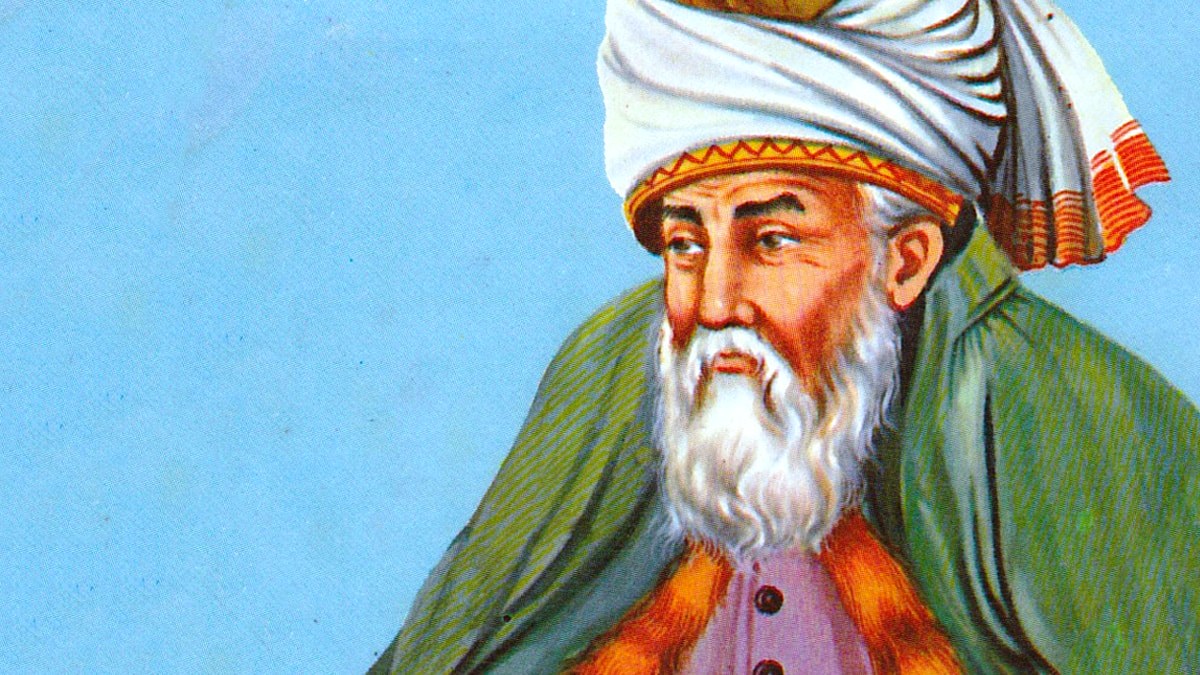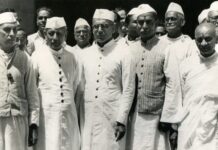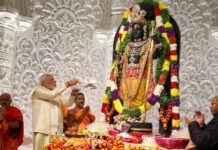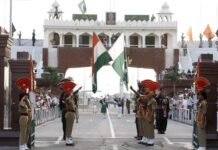Awards and events for art and culture must reflect the sensibilities of civil society, not further the ideological agenda of a government, says Haseeb A Drabu.
A couple of months back, the J&K Academy of Art, Culture and Languages announced the state’s highest literary award – best book – for excellence in literature written in the nine languages that figure in the sixth schedule of the State Constitution. This award is significant not because of the cash prize of Rs 51, 000, a citation, a shawl and a memento that it carries but because it is the only state level recognition.
The book Leaves of Chinar was adjudged the “best book” written in English language. If you are hard pressed to name the author, I can help you out; it is the well known writer-poet, Ghulam Nabi Khayal. I haven’t seen or read the book, but I am told it is a compilation of Mr Khayal’s articles written on different aspects of Kashmir: from language to culture to heritage. I presume most of these must be his reflections that appeared from time to time in the newspaper, Greater Kashmir. I may be wrong. But that is not really the point.
Notwithstanding Mr Khayal’s eminence and longstanding stature — he is a 1975 Sahetiya Academy Award Winner for his essays Gaashir Munaar – – very few people outside of Kashmir Valley, I dare say even outside of Srinagar, would have heard of this book. Fewer still, would have read it.
Yet, the wise men in the academy chose it as the best book. If Leaves of Chinar by Ghulam Nabi Kayal has been adjudged the “best book in English language from J&K”, what are the reasons for it being so? What is the choice informed by? Are there any stated criteria for choosing a best book in J&K? Or is it left open ended so that year after year the criteria are retrofitted or determined once the book is chosen? Also, which books and authors qualify to be “from J&K”? Does the author have to be a Kashmiri? Does the book have to be about Kashmir? Does he/she have to get it published in Kashmir? Does it have to belong to a particular genre?
These are important issues as they have a bearing on the only question I am seeking answer to: Why wasn’t Curfewed Night, The Colloborator or the Garden of Solitude adjudged as the best book? Indeed, were these books even considered? Discussed? Shortlisted? Going back in time, why was the internationally acclaimed and respected poet, Aga Shahid Ali’s books never feted with this award? One of the two qualifying criteria — it should be written by a state subject or a person settled in the state — are met in all these cases.
The bureaucratic response, one can be assured, would be a technicality: that the authors didn’t submit their books/manuscripts to the academy! Perhaps the authors didn’t know. More realistically, even if they did know, they may not have wanted to.
To be honest, with the kind of global response and praise that these writers have got, it would be an honor for the academy to fete them rather than the other way around! But then the all-powerful Academy which is the repository of all art, culture and languages can’t be expected to look for people! It will be below its institutional dignity. After all, it is a part of the all mighty Government!
The J&K Academy, its central committee and jury are living in a world of their own? They seem to be in a deep slumber, unmindful of the realities around them if they choose a locally published compilation of essays over these world class produced and globally acknowledged books written on Kashmir by Kashmiris.
If a Waheed Mirza or a Siddhartha Gigoo or a Basharat Peer — all Kashmiris and state subjects — don’t get awarded what does it reflect?
It reflects many things. First and foremost, it reflects the government ownership and control of the J&K Academy of Art, Culture and Languages.
More fundamentally, it shows that all these awards showcase the ideological biases of the government and the intolerance to any form or type dissent, even if purely intellectual. This is coercive state authority on at its worst. It reflects the lack of respect for the sensibilities of the civil society as well as the rights of individuals to articulate an opinion.
 Incredible as it is, on the home page of the J&K Cultural Academy’s website is a section, “Authorities of the Academy”. Be damned if you expect to find names of the likes of Rehman Rahi or Aga Shahid Ali or Neerja Mattoo or Naseem Shifai. The “authorities of the academy” are, N N Vohra, Omar Abdullah and two bureaucrats! Evidently, the distinction between an
Incredible as it is, on the home page of the J&K Cultural Academy’s website is a section, “Authorities of the Academy”. Be damned if you expect to find names of the likes of Rehman Rahi or Aga Shahid Ali or Neerja Mattoo or Naseem Shifai. The “authorities of the academy” are, N N Vohra, Omar Abdullah and two bureaucrats! Evidently, the distinction between an
“Authority” and “Administrator” particularly in this context of the cultural academy is lost on the people in charge of the Academy. So what can one expect?!
To rub it in with impunity, out of the five official members of the Academy, who sit on judgement for the awards, four are outsiders who don’t even have a nodding acquaintance of either Kashmiri, Dogri or Ladakhi. Not to speak of the lesser-spoken languages in the state like Dardi, Pahadi and Gojri! They decide on the best books in these languages. Can there be a greater disgraceful system and a greater disrespect to the language, its practitioners and the people to whom it belongs.
The larger issue of control is not of people, who of course keep changing, but the overall system. It is a government body that functions like a government department.
Why are Peer, Mirza and Gigoo important for someone like me who is a Kashmiri but not to these wise men? Not because I necessarily have a better appreciation of literature and aesthetics. Not also because these books, timely as they are, are masterpieces in fiction or non-fiction or literature.
 These books are important for a Kashmiri because there is an element of collective pride in their global reckoning. More fundamentally, these books are the first “narrative” of Kashmir. Considering that Kashmir has been destroyed by myths and motivated apologues, they assume great significance. For as Nicholas Tayeb writes, “You replace lies with the truth; but myths can be only be displaced by a narrative”. It is precisely this narrative that these books provide.
These books are important for a Kashmiri because there is an element of collective pride in their global reckoning. More fundamentally, these books are the first “narrative” of Kashmir. Considering that Kashmir has been destroyed by myths and motivated apologues, they assume great significance. For as Nicholas Tayeb writes, “You replace lies with the truth; but myths can be only be displaced by a narrative”. It is precisely this narrative that these books provide.
If there is anything more galling than the choice that has been made, it is the way in which that the choice has been made; the approach.
The proposed but now postponed literature festival in Kashmir – organised by some Indian civil society enthusiasts and some say supported by the state government — is another manifestation of the same absurdity: a literature fest in Kashmir.
How does one react, let alone participate and judge, an “apolitical” literature festival in Kashmir? For starters, it is naive to eschew the idea of political responsibility of the writer, opting instead only for his aesthetic responsibility to espouse and transmit a certain literary tradition. In a hugely polarised civil society and an even more contentious political issue, this is just not possible.
 Even if the “intent of the author” is to stay “apolitical” — whatever that may mean in this context — the “intention of the text” will perforce yields a stimulating fodder for social scientists as well as and literary critics. Of course, that is, if the writers are honest to their self, skill and society!
Even if the “intent of the author” is to stay “apolitical” — whatever that may mean in this context — the “intention of the text” will perforce yields a stimulating fodder for social scientists as well as and literary critics. Of course, that is, if the writers are honest to their self, skill and society!
For, literary imagination is not, as Kundera once commented on Kafka, “a dream-like evasion or a pure subjectivity, but rather a tool to penetrate real life, to unmask it, to surprise it.”
And how does one read the reluctance of some of the writers from Kashmir to participate? While the novels of Peer, Mirza and Gigoo are not “political”, they do examine the realm of politics from outside, fortified with the superior cognitive and moral elixir of art.
Their insights do help appreciate the nature and limitations of an insider’s view of politics. They provide thoughtful comments on Kashmir politics and culture, dissident. Not everything that is political has to be in the reductive world of ideology.
These writers’ views on politics are informed by their life experience of growing up in Kashmir during the height of civil strife. For all their creative imagination, a Peer’s vision has been very much shaped by his unique growth experience; or a Mirza’s view by the experience of rebellion; the hope of Azadi and disillusionment of rigged elections, the persecution of their friends in Kashmir. And then, them “coming into their own” outside Kashmir in a suspicious environment around. These people have managed to escape from politics and sought refuge in writing; most others haven’t.
At an overtly political level, the writers do make a telling point in their open letter. In a civil society where dissent posted on Facebook has been punished; where a letter to the editor questioning a decision of government attracts personal attention at the highest governance level and the state’s dirty tricks machinery goes into overdrive to punish the letter writer and get it withdrawn, having the freedom to speak within the confines of a literary festival is like permitting a bird to fly in a cage: a cruel and insensitive joke. What can make of the “freedom to speak anything” — as the organisers of the festival claimed, when the same right is being increasingly denied to everyone else in the state.
The moral of the story seem to be that you can be awarded with recognition if you are blind to what is happening in Kashmir; and you will be rewarded with an opportunity to speak your mind if you are deaf to the aspirations of the civil society of Kashmir.
As the radical French philosopher, Michel Foucault once famously said, “how can one speak of insanity in the language of reason?” To put in the current context, how can one talk of rebellion and freedom in the language of subordination and in an environment of subjugation? Since the thinly veiled attempts at assimilation neither have the required maturity of thought nor the conviction of liberalism, the twain shall not meet! At least, not for now.















